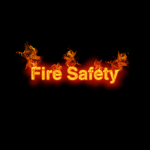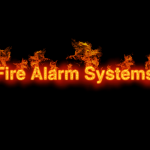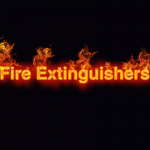The Fire Safety Order or Regulatory Reform order of 2005 is a piece of legislation which applies to non-domestic properties, as well as to the common parts in bigger domestic properties. The Fire Safety Order puts a lot of emphasis on preventing fire, and it is something that all business owners, as well as those who are self-employed and those in the voluntary sector should be aware of and are obliged to follow.
Note: Fire certificates do not have a legal status now.
The Fire Safety Order is in effect in England and Wales. The order covers general precautions and also lists the fire safety duties which premises owners must follow in order to protect people if there is a fire. The order states that precautions must be in place ‘where necessary’, and that property owners must take measures to a reasonable extent to ensure that the public are safe.
The person who is responsible for ensuring that a business complies with the Fire Safety Order is known as the ‘responsible person’, and there is a focus on safety in the case of fire that applies to ‘all relevant persons’. They are required to pay attention to people who may be vulnerable or at risk – such as those who have a disability or special needs, and they must consider whether or not any dangerous substances are likely to be present on the premises.
When you conduct a fire risk assessment it will help you to identify any risks that are present in your property right now so you can eliminate them, reduce them or manage them. The extent of general fire precautions will depend on what risk you have left after producing your plan.
Who Needs to Consider the Fire Safety Order?
The fire safety order applies to:
- employers
- people who run a business premises
- people who are self employed and have a premises other than their home through which they conduct business
- charities and voluntary organisations
- contractors with control over a premises.
Your premises are considered to be relevant to the Fire Safety Order if they are a place, workplace, land based installation, tent or movable structure or any kind of vehicle or vessel (including hovercrafts and aircraft).
There are some exemptions to the order – including single private dwellings, fields woodland or other land that is part of a forestry or agricultural project and that is not within a building, offshore installations that are covered by specific offshore regulations, mins that are covered by the 1954 Mines and Quarries Act, borehole sites covered by the 1995 act, and vehicles used as a means of transport in accordance with the VERA of 1994. If you are not sure whether your property, installation or premises is covered by the Fire Safety Order then it is a good idea to seek advice from a specialist as soon as possible, because failure to comply with the order could result in fines or being asked to cease your business operations until you are operating in compliance with the act. It is your responsibility to ensure that the premises is safe.




